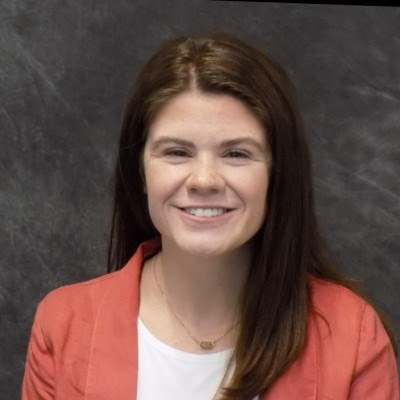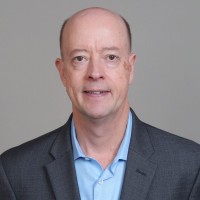Geologists need jobs and want to make an impact on the world. Carbon Capture, Utilization and Storage (CCUS) that includes applications such as Enhanced Oil Recovery (EOR) and Carbon Capture and Sequestration (CCS) is a growing field for geologists, because it provides jobs and impact. Geologists joining the job market for the first time, and those pivoting at late career stages are interested in the topic, as evidenced by the steadily growing attendance at the annual CCUS conference sponsored by the SPE, AAPG, and SEG societies.
To better understand the skills and capabilities that are transferrable from oil and gas, I interviewed two geologists who recently pivoted to CCS. Paiden Pruett, a geologist with Tallgrass Energy pivoted to CCS immediately after graduate school. Ed Feragen pivoted to CCS after more than 33 years in the Oil and Gas industry. Both Pruett and Feragen find commonalities between Oil and Gas and CCS. Their perspectives represent career bookends that tell the same story: it’s an exciting time to be a geologist.
Why pivot: an early career view
“I expected to go to school and pursue a career in Oil and Gas,” says Pruett, who held internships at Hilcorp and EOG. “But then Covid happened, the job market changed, and recruiters went silent,” she says. Pruett became interested in the Oil and Gas industry by observing independent wildcatters where she grew up in South Central Texas. She pursued an undergraduate degree in Geophysics at Texas A&M and then a master’s degree at Oklahoma State.
Pruett studied with Oklahoma State professor Dr. Camilla Knapp, a leader in geophysical applications to CCS. Confronted with a weak job market for Oil and Gas, and a desire to be a good steward of the planet, Pruett says she looked to apply her academic experience to CCS. In addition, Pruett says she saw many of her classmates taking jobs in CCS with companies such as Batelle, the US Department of Energy, and Denbury.
In 2022, Pruett joined GHD, an energy consulting firm, where she became part of the company’s “Future Energy” team conducting site feasibility studies for CCS projects. Pruett says that she was excited to work with mentors such as HGS member Michelle Pittenger, who has decades of experience in EOR projects and Katrina Coterill, who brought a wealth of geophysical knowledge. In late 2023, Pruett followed mentors to Tallgrass Energy, a midstream company that recently expanded to CCS projects. Pruett is excited to be working for an action-oriented operator. “We have done a lot of research, and it’s time for field developments,” she says.
Why pivot: a mature career view
“We are still going to be using hydrocarbons for a long time,” says Ed Feragen who retired from ExxonMobil after 33 years of Oil and Gas experience and now works as an independent consultant for CCS. New forms of energy are gaining momentum; but Feragen cautions, “There is no flip of the switch, so CCS is a great bridging tool.”
Feragen began his geology career prospecting in East Texas. He then moved to Germany to explore in a mature basin before returning to Houston to work frontier exploration in offshore Brazil. Feragen then transitioned into formal leadership roles where he learned about portfolio management, people management, and the importance of stakeholder engagement, with assignments developing fields in California, Kazakhstan and Russia. Reflecting on key lessons he learned, Feragen says, “Geoscience is fundamental, but an opportunity must make sense economically, and you must be able to get all the stakeholders on board.”
In 2020, Feragen retired from ExxonMobil. Although, he could have consulted for Oil and Gas, he pivoted to CCS where he became the Executive Vice President of Sequestration for Cozairo, a start-up CCS project developer. In 2023, Feragen set up his own company to provide site screening, subsurface characterization, and other advisory services for CCS clients. “I have the background and the expertise. I can try in a modest way to fight CO2 emissions and mitigate global warming,” he says.
Transferrable skills
“I’ve been pleasantly surprised to see how transferrable the skills are,” says Feragen. Both subsurface specialist skills, such as petrophysics and geophysics, and generalist integrator skills are critical to CCS site characterization. Feragen says that the industry needs high-quality reservoir characterization and monitoring, because it is critical to long-term project success. He says, “The characterization work is not easier than Oil and Gas, just different.” Pruett echoes the idea that subsurface characterization is essential to CCS projects. “When planning to store large amounts of CO2, you really must understand the subsurface,” she says.
Feragen describes that project management and execution skills are essential to developing CCS opportunities. Integrated projects require coordinated design and implementation of wells and facilities. Furthermore, leadership is important in project development. “Designing a CCS project allows for a fit-for-purpose approach,” says Feragen. “You apply leadership skills to design and communicate a plan for a particular site.”
Communication is a key transferrable skill for Feragen. CCS project development requires communication with customers, emitters, regulatory agencies and the public. Feragen says he learned the criticality of stakeholder alignment while developing a hydrocarbon project offshore California in the mid-2000s. Although the project had strong technical and economic potential, the community and government stakeholders were not aligned with the goals of the project, and it ultimately did not progress to production. Similarly, Feragen describes that oil and gas operations require routine interfaces with regulators, a skill set he practiced during the start-up of the Arkutun-Dagi field on Sakhalin Island in Russia.
New skills for CCS
Both Feragen and Pruett find that CCS requires a new perspective. The regulatory regime governing CO2 injection for sequestration (UIC Class VI) is focused on protecting Underground Sources of Drinking Water (USDWs). “Your license to operate is all about protecting USDW’s,” says Feragen. “So, you need to be focused on potential leakage pathways, such as improperly abandoned wellbores,” he says.
Pruett says the high level of regulatory oversight of CCS projects may feel daunting to seasoned Oil and Gas practitioners. She draws the comparison that regulations lagged development of the hydrocarbon industry, whereas CCS regulations were established at the outset of the industry. Pruett predicts that over time regulations will adjust and monitoring requirements will shorten, as commercial-scale CCS projects are proven to be safe and effective.
A CCS mindset involves thinking longer term. Class VI injection permits require an operator to test and monitor movement of subsurface CO2 during injection operations and for 50-100+ years after injection ceases. “You have to think about the long game,” says Pruett.
While effective communication is a skill common to both CCS and Oil and Gas projects, the type and style of communication is different. CCS stakeholders include CO2 emitters, such as ethanol plant operators, who are highly experienced in surface operations, but typically lack subsurface experience. Furthermore, CCS geologists may encounter resistance from others in the geoscience community. While the technology is not new, awareness and education are just starting. Some geologists are skeptical that CCS will be impactful. To these geologists, Feragen reminds them that “CO2 injection is a tool that exists today, is proven, and has been used for decades.”
Advice on pivoting to CCS
For geologists who want to learn about CCS, there are many online resources. Pruett and Feragen point to papers, webinars, and podcasts. There are conferences, such as the upcoming 2024 CCUS conference that bring together geologists, geophysicists and engineers to talk about technical challenges and opportunities. Feragen encourages enrollment in short courses. Pruett says that you don’t need 20 years of experience in carbon to be successful; just be open to learning from others.
